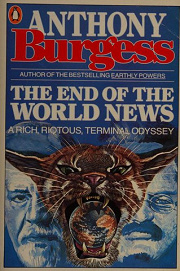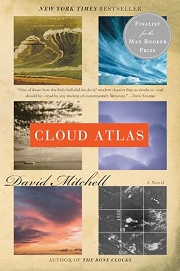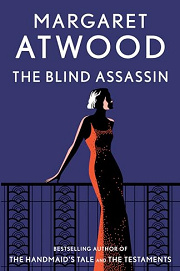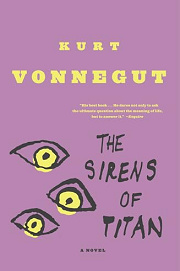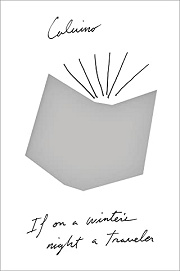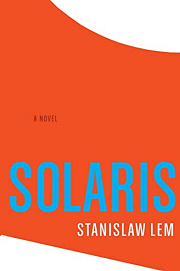Share your thoughts in a quick Shelf Talk!
The End Of The World News by Anthony Burgess
Three sweeping narratives—a scientific quest, a theatrical triumph, and an impending catastrophe—collide in a dazzling collage of wit and invention. Playful, apocalyptic, and audacious, The End Of The World News showcases a master storyteller bending genres to his will.
Have you read this book? Share what you liked (or didn’t), and we’ll use your answers to recommend your next favorite read!
Love The End Of The World News but not sure what to read next?
These picks are popular with readers who enjoyed this book. Complete a quick Shelf Talk to get recommendations made just for you! Warning: possible spoilers for The End Of The World News below.
In The End Of The World News, did you enjoy ...
... the intercut braid of a Freud life-story, a Trotsky-on-Broadway pastiche, and a comet-ark SF thread?
Cloud Atlas by David Mitchell
If what hooked you in The End of the World News was how Burgess spliced together the Freud biographical strand, the cheeky Trotsky musical numbers, and the looming-comet exodus into a single, echoing tapestry, Cloud Atlas will scratch that same itch. Mitchell stacks six distinct narratives across eras and genres—each in a different voice—so the patterns, riffs, and callbacks build into a grand design the way Burgess’s three tracks resonate across history, politics, and speculative catastrophe.
... a time-hopping structure that nests tales and reveals its secrets out of order?
The Blind Assassin by Margaret Atwood
You liked how Burgess shuffled timelines and modes—cutting from the Freud chapters to the Trotsky stage pastiche to the impending-disaster SF—so that meaning emerged from the juxtapositions. In The Blind Assassin, Atwood layers a memoir, period clippings, and a pulpy sci‑fi tale told within the narrative, letting revelations surface non‑chronologically. That same pleasure of discovery—reading the mosaic until the image clicks—drives this novel.
... mordant, genre-bending satire that skewers politics and grand narratives while the cosmos misbehaves?
The Sirens of Titan by Kurt Vonnegut
If the Trotsky-in-America musical burlesque and the wry treatment of world-ending stakes in The End of the World News made you grin, Vonnegut’s The Sirens of Titan hits the same nerve. It lampoons militarism, destiny, and human self‑importance while hopping planets and timelines—balancing cosmic misadventure with the kind of deadpan, idea‑rich satire Burgess deploys when he crosswires history and apocalypse.
... playful formal experimentation and abrupt switches of voice and genre?
If on a winter's night a traveler by Italo Calvino
Did you enjoy how Burgess turned one book into three—complete with musical set pieces and a speculative strand—so the form itself became part of the fun? Calvino’s If on a winter’s night a traveler makes the act of reading the adventure: it starts and restarts across wildly different styles, addressing you directly while flipping frames as audaciously as Burgess toggles from Freud to Trotsky to doomsday. It’s clever, lively, and formally dazzling.
... a big‑ideas inquiry into memory and the unconscious embedded in speculative fiction?
Solaris by Stanislaw Lem
If the Freud narrative’s probing of desire, repression, and interpretation was your favorite current in The End of the World News, Solaris channels those concerns through science fiction. Lem’s sentient ocean confronts scientists with living embodiments of their own memories, turning the expedition into an examination of the psyche—an eerie, intellectually charged mirror to Burgess’s fascination with how the mind makes (and misreads) meaning.
Unlock your personalized book recommendations! Just take a quick Shelf Talk for The End Of The World News by Anthony Burgess. It’s only a few questions and takes less than a minute.
